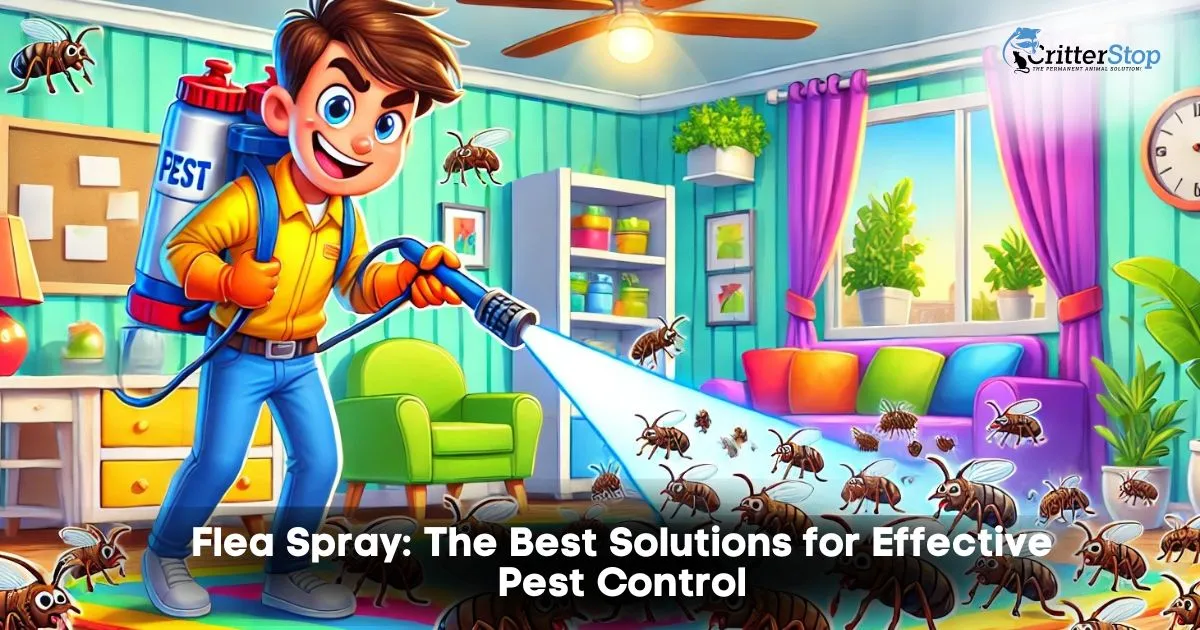
Fleas are a common problem for pet owners and can quickly infest homes, leading to discomfort for both pets and humans. Flea spray is an effective solution to eliminate these pests and prevent future infestations. Understanding how it works and the best options available is essential for anyone dealing with a flea problem.
Many flea sprays contain insecticides that target fleas at different life stages, ensuring a more comprehensive approach to pest control. Some sprays are designed for indoor use, while others are suitable for outdoor applications. Selecting the right product based on the environment and severity of the infestation can significantly impact the effectiveness of the treatment.
By exploring the various types of flea sprays and their specific applications, readers can make informed decisions that will restore comfort in their homes. The key to successful flea management is immediate elimination and ongoing prevention to keep homes flea-free.

Flea sprays are essential for managing flea infestations in homes and pets. They come in various formulations and are designed to target fleas at different life stages.
Flea sprays primarily fall into two categories: adulticides and insect growth regulators (IGRs). Adulticides kill adult fleas on contact, providing immediate relief from infestations. Common adulticides include pyrethrins and permethrin.
In contrast, flea sprays with IGRs, such as methoprene and pyriproxyfen, disrupt the flea life cycle, preventing eggs and larvae from developing into adults. Some flea sprays combine both types, offering comprehensive control. It's critical to select a spray suited to the environment's specific needs, whether for home use or as an anti-flea spray for pets.
Fleas have four distinct life stages: egg, larva, pupa, and adult. Understanding this life cycle is fundamental for effective treatment. Flea eggs can hatch into larvae in just a few days, and like IGRs, effective sprays can help break this cycle.
Regular treatments are necessary, as adult fleas may emerge from their pupal stage even after initial spraying. A continuous flea treatment regimen lasting around three months is often recommended to eradicate fleas and prevent re-infestation fully. This approach ensures new adult fleas do not pose problems before the spray's efficacy diminishes.
Flea sprays contain various active ingredients that vary in effectiveness against different flea life stages. Pyrethrins and permethrin are well-known for their quick knockdown of adult fleas. In contrast, IGRs like methoprene are key for preventing future generations.
Other ingredients may include essential oils, like lavender or peppermint, offering natural alternatives. These can be less toxic but may require more frequent application. When choosing a flea spray, consider the specific needs of the environment and any pets that may be exposed. Always read the product label for proper usage instructions and safety guidelines.
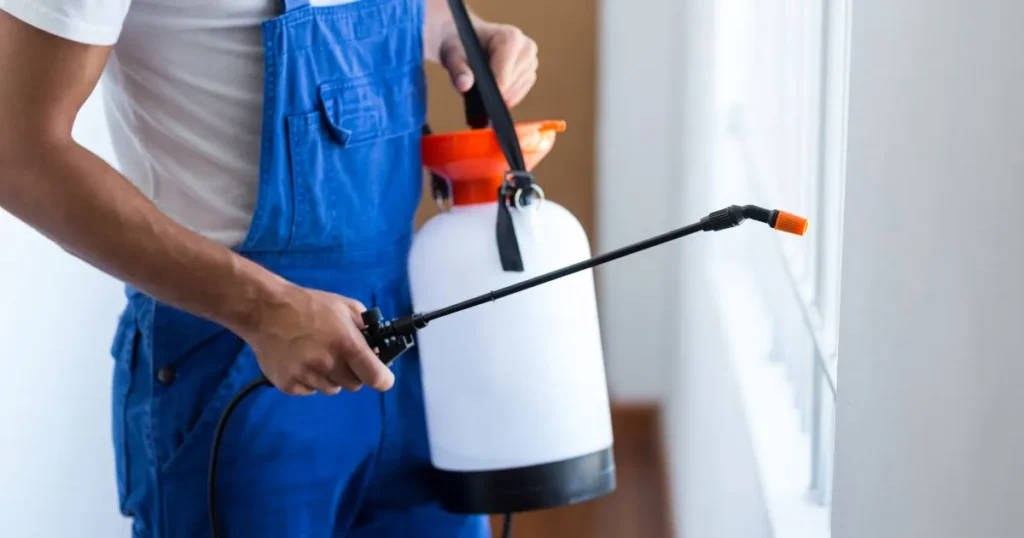
Selecting an effective flea spray involves understanding specific factors and observing safety precautions. Different sprays target various infestations and environments, so making informed choices is essential.
When choosing the best flea spray, consider factors such as the type of infestation and environment. Opt for an unscented flea spray for indoor use to minimize odors, especially in small living spaces.
Identify the insects, as some sprays target both fleas and ticks. Products labeled as flea and tick spray for the home can provide dual protection. Examine ingredients closely; for instance, a nature flea spray often contains plant-based components that are effective yet gentle on the environment.
Read reviews and compare effectiveness. Many users recommend sprays that offer long-lasting benefits and quick action. Look for options that mention “insect growth regulator” (IGR) to prevent future infestations by disrupting flea life cycles.
Safety should be a priority when selecting a flea spray. Many commercial sprays contain chemicals that may pose risks to pets or children. Always check labels for warnings and follow dosage instructions carefully.
While using a flea and tick natural spray, ensure it is safe for the specific environment; some natural ingredients may still irritate. Choose products designed for the intended area, whether carpet, furniture, or outdoor spaces.
Ventilation is crucial during application. Open windows and allow for drying time before reintroducing pets or family members into the treated area. Always conduct a patch test in a small, inconspicuous area to ensure materials do not react poorly with the spray.
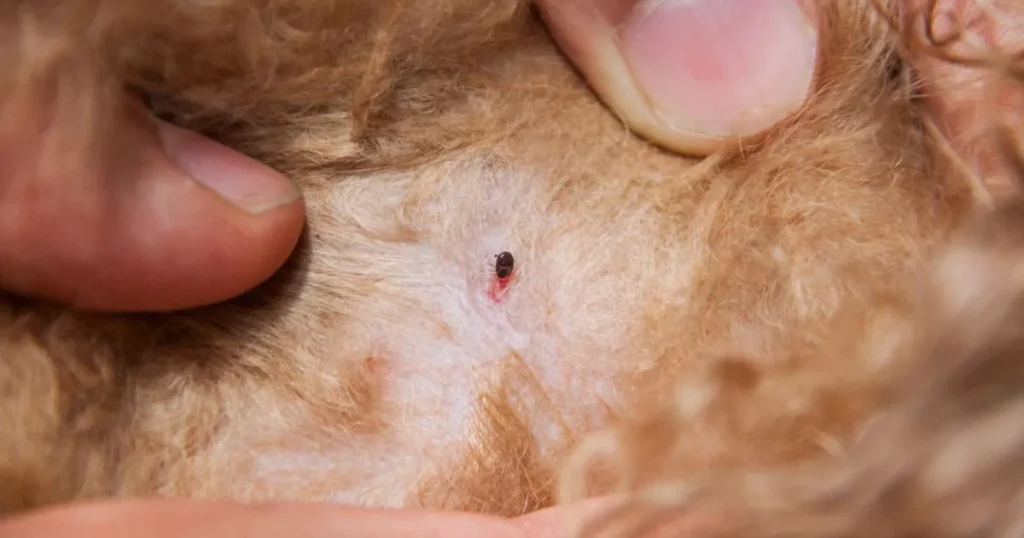
Proper application of flea spray can significantly impact its effectiveness in controlling flea populations within a home. Understanding targeted strategies enhances results and eliminates pests more efficiently.
Choosing the right product specifically designed for indoor use is crucial to apply flea spray effectively. Preparation steps include:
For best results, focus on areas where pets frequent. Using flea spray for carpets and upholstery can ensure complete coverage. Always follow the manufacturer's instructions regarding drying time and re-entry into treated areas.
To maximize the effectiveness of flea spray, timing and environmental factors are key. Here are several strategies:
Utilizing the best flea spray for home helps create an environment less hospitable to fleas. Observing the areas where fleas are most active can guide targeted applications.
An effective indoor treatment strategy focuses on high-traffic areas and where pets spend time. This includes:
Using flea and tick spray for inside the house as part of a broader pest management plan can lead to better long-term control.
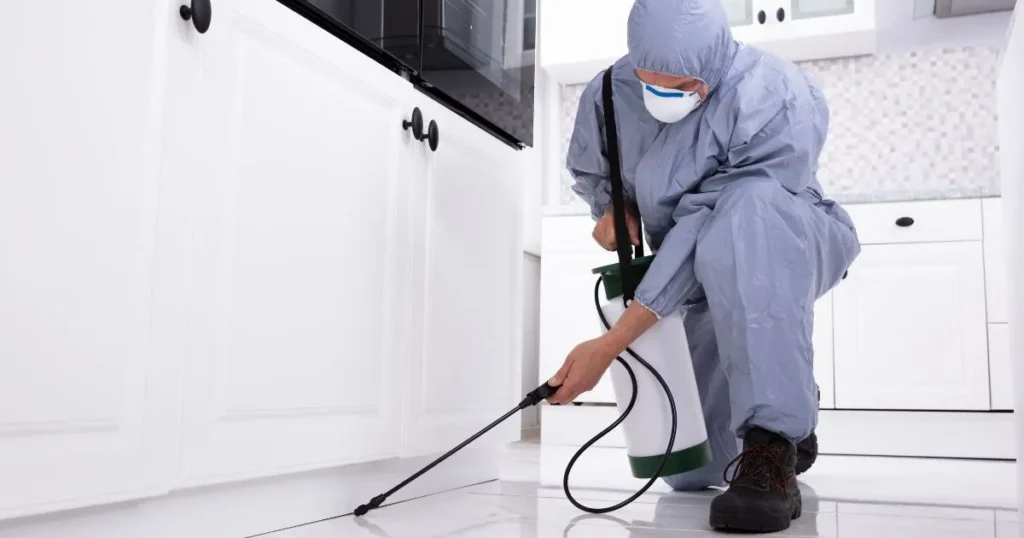
Flea sprays for the home are essential tools in the fight against infestations. They come in various formulations, providing options for every preference, including natural alternatives.
Several products stand out in the realm of flea sprays for home use. Raid Flea Killer is frequently recognized for its fast-acting formula that targets fleas, ticks, and lice. It can effectively eliminate adult fleas while preventing future infestations.
Hot Shot Bed Bug and Flea Killer provides extensive coverage and is safe for use on carpets and furniture. This product kills on contact and offers residual effects to keep spaces flea-free.
Another popular choice is PetArmor Home and Carpet Spray. This flea spray is designed for soft surfaces and effectively handles a range of pests. Choosing a non-toxic and pet-friendly spray is essential for those focused on safety, allowing for peace of mind in homes with animals.
Peppermint flea spray is gaining traction for those looking for a more natural approach. Peppermint oil possesses properties that repel fleas, making it a preferred choice for many households. It is easy to make at home by mixing water with peppermint oil in a spray bottle.
Another alternative is diatomaceous earth, which can be sprinkled onto carpets and soft furnishings. Once applied, it dehydrates fleas and disrupts their lifecycle.
Using natural flea spray can effectively repel unwanted pests without the use of harmful chemicals. Essential oils like lavender and eucalyptus also serve as effective deterrents, while keeping the home smelling fresh.
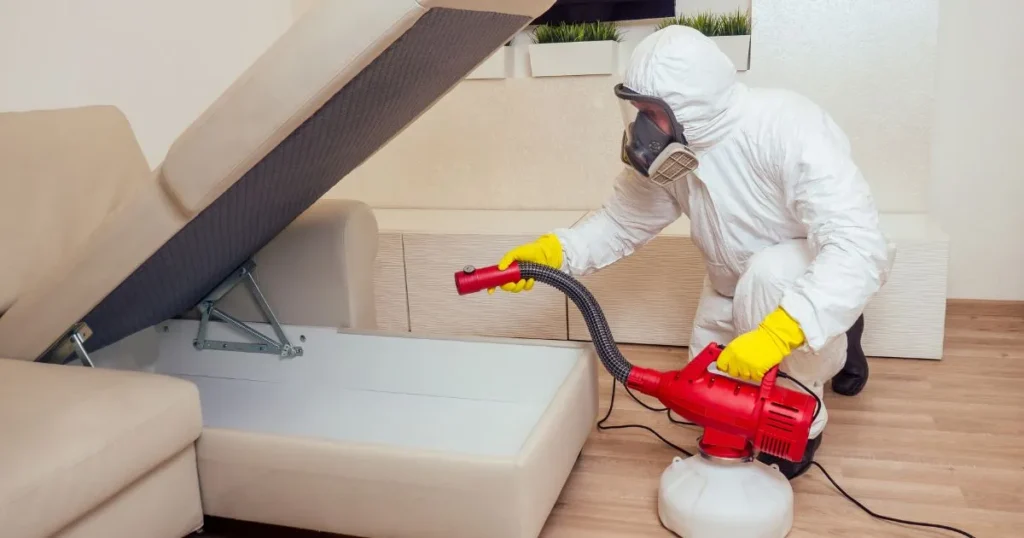
Maintaining a flea-free environment requires consistent efforts and the strategic use of flea sprays. The following subsections outline effective practices and the integration of flea sprays into regular household routines.
Regular cleaning is essential to prevent flea infestations. Vacuum carpets, rugs, and upholstery frequently to eliminate eggs and larvae. Wash pet bedding in hot water weekly to reduce flea populations.
Yard maintenance is also crucial. Keep grass trimmed and remove debris where fleas may thrive. Utilizing flea spray for the home targeting exterior areas can create a barrier against these pests. Households can benefit from flea aerosol spray applied to cracks and crevices where fleas may hide.
Consulting professionals like Critter Stop can provide effective solutions for persistent issues. Critter Stop has a fantastic reputation and online customer reviews because it provides high-quality work and excellent customer service. They offer a free inspection to help address any wildlife or pest problems.
Incorporating flea sprays into a regular maintenance routine enhances long-term control. Selecting a flea and tick spray for home use that is effective and safe for pets and children is crucial.
Applying flea spray monthly, particularly during peak flea seasons, can significantly reduce infestations. Sprays should be used with other preventive measures, like regular pet grooming and monitoring outdoor activities.
Local options provide additional resources for finding suitable products. For comprehensive flea spray near me pest control, calling Critter Stop at (214) 234-2616 is advisable for addressing wildlife and pest removal challenges.
Flea infestations can be a frustrating and persistent problem, especially in homes with pets. Selecting the right flea spray and understanding how to use it effectively are crucial steps in getting rid of these pests and keeping your home safe. Below, we’ve answered some of the most common questions about flea sprays to help you make informed decisions and ensure the safety and comfort of your family and pets.
The most effective flea spray for a heavy infestation usually contains adulticides and insect growth regulators (IGRs). These components kill adult fleas and disrupt the flea life cycle, preventing eggs and larvae from maturing. Look for products specifically designed for severe infestations to ensure thorough treatment.
Flea and tick spray can be safely used around pets by following the product's instructions carefully. Keep pets out of the treated area until the spray has dried completely. Some sprays are formulated to be safe for use directly on pets, while others are for environmental use only. Always choose a product labeled as safe for pets and consult with your veterinarian if you have any concerns.
The best flea spray for home use balances safety and effectiveness. It typically contains natural ingredients or is free from harsh chemicals. Products with essential oils or ingredients like peppermint can be effective and safer for families with pets and children. Ensure the spray is labeled for indoor use, and check reviews or consult professionals for recommendations.
Flea spray for home should generally be applied every 7-14 days, depending on the severity of the infestation and the product's instructions. Regular applications are crucial to breaking the flea lifecycle, especially during peak flea season. Continue treatments for several weeks to ensure all stages of fleas are eradicated.
The best flea sprays offer targeted action, ease of use, and the ability to treat large areas quickly. Unlike other treatments like flea bombs or powders, sprays can be applied directly to specific areas, including carpets, furniture, and pet bedding. They are often faster-acting and more effective at reaching hidden fleas.
A flea and tick spray for home is more effective if it includes both a fast-acting insecticide and an IGR to prevent future generations of fleas. Combining these ingredients ensures that adult fleas are killed immediately and eggs and larvae are prevented from maturing. Additionally, a good spray should have residual effects, continuing to work for several weeks after application.
When used correctly, flea spray for inside the house can be safe for children and pets. Choose products that are specifically labeled as safe for use around kids and animals. Always follow the manufacturer's guidelines, such as allowing the spray to dry completely before reintroducing children and pets to the area, to minimize any risks.
Anti-flea spray kills adult fleas on contact and prevents the development of eggs and larvae. The longevity of its effects depends on the formulation, with some sprays protecting for up to a month. Regular reapplication may be necessary to maintain control, especially during flea season.
When using flea spray indoors, it’s important to ventilate the area well during and after application. Wear protective gloves and avoid contact with skin and eyes. Remove pets and children from the treated areas until the spray has dried completely. Also, cover or remove food items and clean up any exposed surfaces after treatment.
The best flea spray for carpets is designed for fabric and carpets. These sprays are formulated to be effective against fleas while gentle on fibers. Look for products labeled as safe for carpets and upholstery, and always test a small area first to ensure no staining or damage occurs.
You can find effective and affordable flea spray at most pet stores, home improvement stores, or online retailers. Local pest control companies may also sell high-quality products. Check reviews or ask store staff for recommendations to find a product that meets your needs.
Peppermint flea spray can be effective as a natural alternative, particularly for mild infestations, or as a preventative measure. However, chemical-based sprays are more potent and may be necessary for severe infestations. Peppermint sprays are often preferred for their safety and eco-friendliness, though they may require more frequent application.
For best results, flea spray house treatments should be applied methodically throughout the home, focusing on areas where pets spend time, such as bedding, carpets, and furniture. Be sure to treat all areas simultaneously to prevent fleas from relocating to untreated areas. Follow the manufacturer’s instructions carefully for maximum effectiveness.
Flea spray with IGR (Insect Growth Regulator) is designed to interrupt the development of flea eggs and larvae, preventing them from reaching adulthood. By halting the life cycle, IGR sprays reduce the likelihood of re-infestation. These sprays are particularly useful in breaking the flea cycle over time, ensuring long-term control.
Flea spray home treatment can be highly effective in large spaces if applied thoroughly and evenly. For best results, ensure you have enough product to cover the entire area, and consider using a combination of sprays and other methods, such as vacuuming, to enhance effectiveness. Regular reapplication may be needed to maintain control in larger homes.
Flea aerosol sprays typically provide a finer mist and can cover large areas quickly, making them ideal for treating open spaces like carpets and furniture. Liquid sprays may offer a more targeted application and be useful for cracks, crevices, and pet bedding. Both have their advantages, depending on the specific needs of the treatment area.
When choosing the best flea spray for a carpet in a multi-pet household, look for products labeled as safe for pets and designed for fabric use. Consider sprays with low toxicity and minimal odors to ensure the comfort of all pets. Choose a product with long-lasting effects to minimize the need for frequent reapplications.
Most flea and tick carpet spray products are designed to be safe for common types of flooring, including carpets and hardwood. However, it’s always a good idea to test a small area first to ensure no discoloration or damage. Look for products specifically labeled as safe for use on your type of flooring.
The best eco-friendly flea and tick spray for the house typically contain natural ingredients like essential oils or plant-based compounds. These products are effective yet gentle on the environment, making them a great choice for households concerned about chemical exposure. Be sure to choose a product that is non-toxic to pets and children.
Unscented flea spray can be just as effective as scented varieties in repelling fleas, as the active ingredients responsible for killing and deterring fleas remain the same. The choice between unscented and scented spray is often a matter of personal preference, with unscented options ideal for those sensitive to strong smells.
Visit our Critter Library and learn more about our furry friends